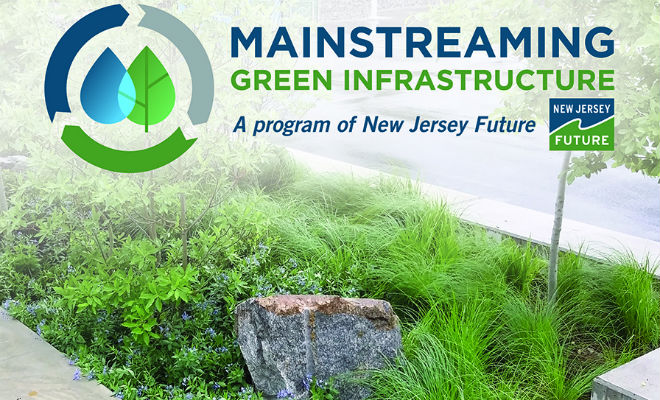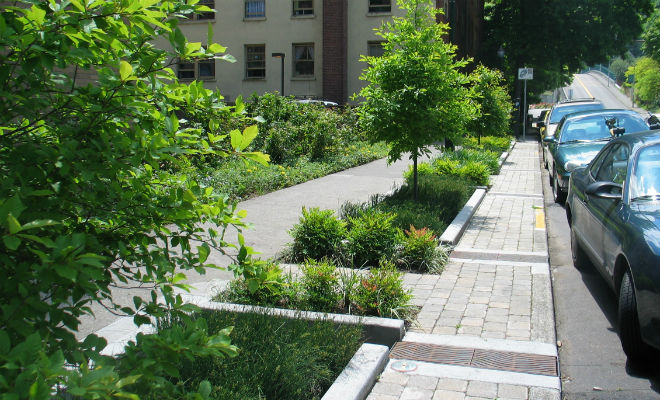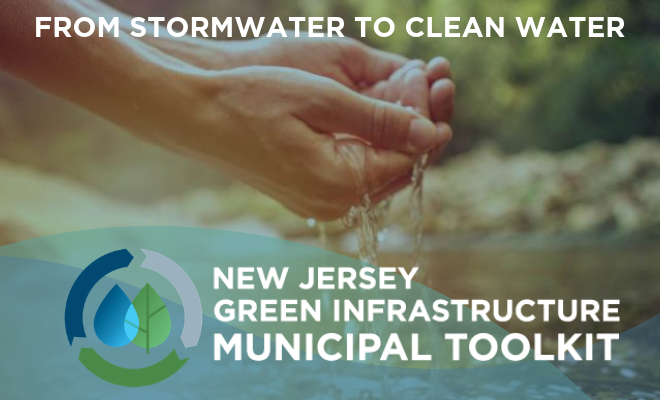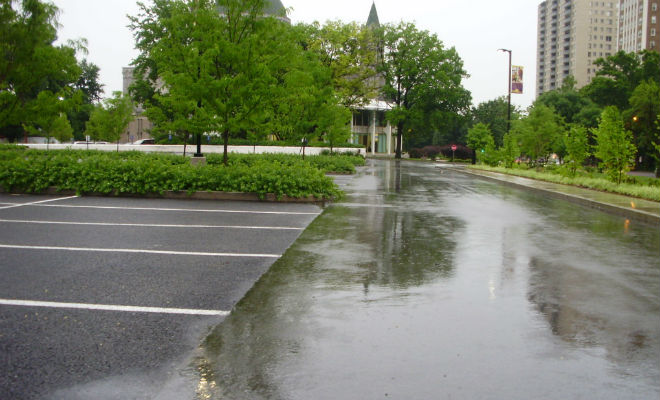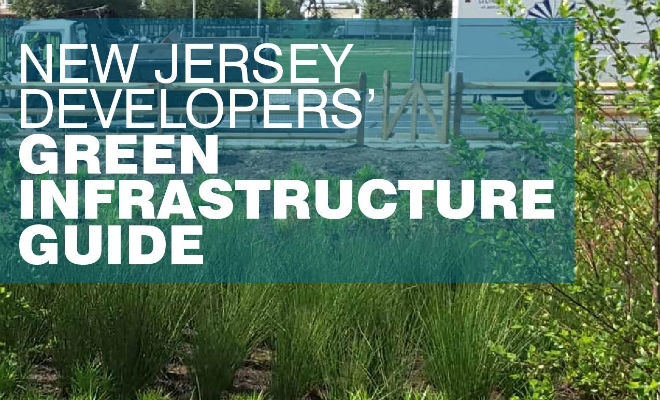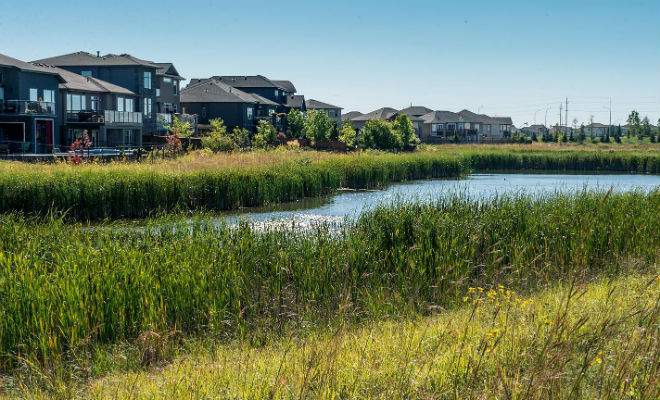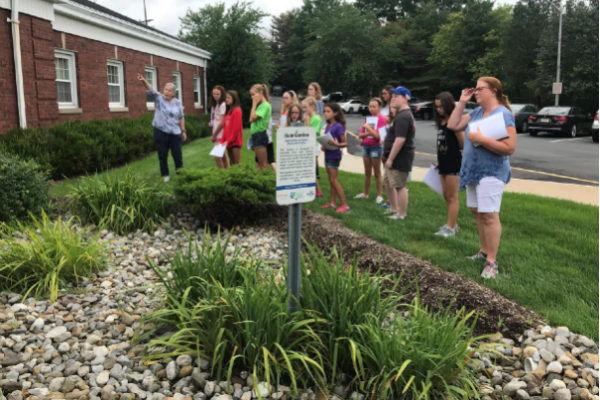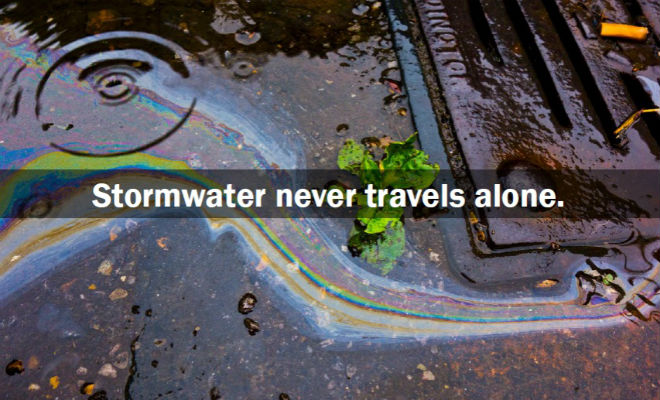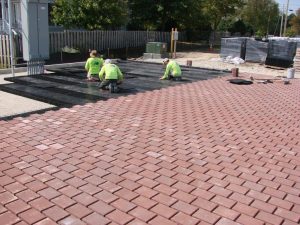Mainstreaming Green Infrastructure
Under today’s climate trends, the art and science of managing stormwater is getting more complicated. Even moderate rain events and brief but powerful downpours cause flooding, and carry pollutants like motor oil, trash, fertilizer, pesticides, and animal waste into local bodies of water, making many of our waterways unsuitable for recreation. Stormwater runoff pollutes the majority of New Jersey’s rivers, streams, and lakes.
Green infrastructure (GI) helps address these problems. On a given site, GI can be designed to capture the rainfall from at least 90% of rain events, preventing runoff that leads to pollution and flooding. GI techniques enable stormwater and melting snow to soak into soils near where they fall or be captured for a beneficial re-use such as irrigation or flushing toilets. Keeping runoff out of the storm sewer system improves water quality and minimizes localized flooding. GI also delivers multiple associated benefits. It cleans and conserves the world’s most precious resource, reduces flooding, improves public health, provides jobs, raises property values, beautifies neighborhoods, and supports wildlife.
Examples of GI include street trees, pervious pavement, rain gardens, rain barrels and cisterns, green roofs, and vegetated swales.
Learn how to make GI a mainstream practice in your municipality using the Green Infrastructure Municipal Toolkit or in your development project using the Developers Green Infrastructure Guide 2.0.
Our Program
Mainstreaming Green Infrastructure is a program aimed at moving green stormwater infrastructure practices into common practice. Years ago, green building standards such as LEED were considered eccentric and expensive. Now, they are understood to be the smart way to build. The same thing is happening with green infrastructure. An important paradigm shift has accelerated the mainstreaming process: the New Jersey Department of Environmental Protection updated its stormwater rule, which takes effect in March 2021, to mandate the use of green infrastructure to meet the rule’s stormwater management requirements. The implications of this rule change will affect many, but not all, developments. There is more work to be done to improve water quality and reduce flooding.
To ensure successful and widespread implementation of GI New Jersey Future works with:
- State agencies to update and improve rules, manuals, standards, programs, and review processes to facilitate GI.
- Developers to promote and advance the implementation of GI, and to encourage and assist a group of developers to act as ambassadors to the industry.
- Municipalities to understand local challenges to green infrastructure implementation and develop solutions.
Download a factsheet to learn more about this program.
Our Work with State Agencies
New Jersey Future is working with state agencies to update and improve rules, manuals, standards, and programs to facilitate and incentivize the use of green infrastructure.
For example, we collaborated with our partners in the building and environmental communities to advocate for amendments to the state’s stormwater management rules (NJAC 7:8). New Jersey Future is continuing work with our partners to advocate for further state-level improvements to mainstream green infrastructure.
Our Work with Developers
GI can offer a powerful return on investment. New Jersey Future partners with the New Jersey Builders Association to convene the Developers Green Infrastructure Task Force, which helps New Jersey’s developers and their design professionals learn about, finance, and build green infrastructure. The task force includes developers, engineers, green infrastructure experts, and attorneys who advise and assist this important work and act as ambassadors to the industry.
The Developers Green Infrastructure Guide, a product of the Task Force, breaks down New Jersey’s Stormwater Rule amendments and helps developers and decision makers understand green infrastructure options (even for challenging sites), advantages, costs, and benefits.
Our Work with Municipalities
Municipalities are on the front lines of installing GI on municipally-owned land including city hall, public parks, local streets and sidewalks. In addition, municipalities are required to update their stormwater control ordinances by March of 2021.
We provide resources for municipalities in our Green Infrastructure Municipal Toolkit to:
- Comply with NJDEP’s stormwater rules;
- Plan the right GI for their towns;
- Implement their plans; and
- Sustain the good work with training, community engagement, and maintenance.
To learn more about how to plan, implement, and sustain GI in municipalities, view the recently-updated Green Infrastructure Municipal Toolkit.
Fact Sheets and Brochures
Mainstreaming Green Infrastructure Fact Sheet
New Jersey Green Infrastructure Municipal Toolkit
Developers Green Infrastructure Guide 2.0
Much of New Jersey Future’s work to mainstream green infrastructure
is supported by a grant from the William Penn Foundation.
Email us for more information (greeninfrastructure njfuture
njfuture org)
org)
Future Facts
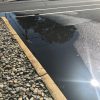
The future of New Jersey’s water relies on commitment to equitable decision-making to solve legacy water infrastructure issues like lead service line replacement, combined sewer overflows, coastal and riverine flooding, and upgrading water infrastructure. By working together to address the growing needs of our water systems, we can properly mitigate the stress they will face with growing and more frequent storms fueled by climate change, and ensure that natural and tap waters are free from contaminants to support healthy and resilient communities across the state.

In 2020, the New Jersey Department of Environmental Protection (NJDEP) updated the Stormwater Management Rules, which now require that municipalities incorporate green infrastructure into major development projects. In many areas of the state, this relatively new policy change has meant a significant departure from the way that stormwater management was approached previously.

“Watersheds are not political and do not follow political delineations,” said Mayor Andrew Nowick from the City of Lambertville at the 2023 NJ Planning and Redevelopment Conference (NJPRC). As flooding increases due to increased intense rain events and aging stormwater infrastructure, it is more important than ever to plan ahead to protect all New Jerseyans in the face of climate change.
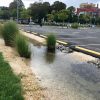
In our highly developed state, upgrading and retrofitting New Jersey’s stormwater infrastructure and reducing impervious cover is a key way to address nonpoint source pollution. It is estimated that up to 60% of the State’s existing water pollution is attributable to stormwater and nonpoint sources of pollution.

This year marks the 50th anniversary of the monumental piece of legislation known as the Clean Water Act (CWA). The CWA plays an important role in cleaning water pollution and protecting healthy waterways in the State of New Jersey for drinking water supply, healthy habitat for fish and wildlife, and economic and recreational activity. As we look ahead, we also acknowledge the work that still must be done to ensure that the CWA’s legacy is lived out in full.
See all New Jersey Future Blog posts and articles in this category »

